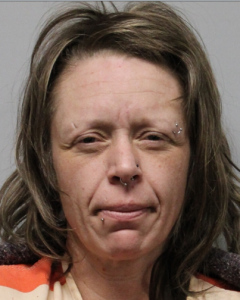(Toronto, ON and Oakland, IA) March 12, 2024 – Iowa farmer Seth Watkins together with Cara Morgan at Golden Hills Resource Conservation and Development (RC&D), have collaborated to bring ALUS, the leading agriculture-based ecosystem service program, to Southwest Iowa. Southwest Iowa will be the first ALUS community in the United States. ALUS is a Canadian charitable organization delivering the only turnkey farmer-led community-based program that rewards farmers for creating, restoring, managing and maintaining nature-based projects on their lands. There are currently 38 ALUS communities across Canada. The program will engage Southwest Iowa farmers and ranchers to produce net new nature and ecosystem services, while addressing rural environmental challenges related to soil health, water quality and wildlife habitat.
RC&D Executive Director Cara Marker-Morgan says “Producers in Iowa currently have access to many great cost-share opportunities. We are excited to bring ALUS to the region to both compliment as well as fill any gaps of these current programs. ALUS works alongside these opportunities to support the long-term management and maintenance of projects by providing on-going annual payments, but also by creating and supporting social networks within rural farming communities that facilitate knowledge sharing and peer-to-peer learning. With support from ALUS SWI, local farmers and ranchers will be able to generate permanent, positive environmental benefits for their farms and the surrounding community.”
Iowa is one of the top ten agricultural and cattle producing states in the US. Most of Iowa’s agricultural land was tallgrass prairie prior to settlement. Only 0.1% of Iowa’s prairie remain and most of the remnants are found in western Iowa. Creating tallgrass prairie along field edges and on marginal agricultural land, as well as incorporating prairie management into cattle grazing practices, is one of the areas ALUS SWI will focus their efforts.
Seth Watkins, of Pinhook Farms, says “Adding tallgrass prairie to the working landscape can help address some of the environmental challenges we have in Iowa, like soil erosion and nutrient run-off. Prairie grasses have deep roots that hold soils in place, prevent weed encroachment and filter nutrients and pesticides from water runoff. They’re resilient to drought and poor soil conditions and provide habitat for a variety of wildlife, like pollinators, beneficial insects and birds. This is one of the regenerative agriculture practices that can help farmers and ranchers build longevity into their operations while producing environmental benefits.”
ALUS communities work directly with farmers and ranchers to create, manage and maintain new acres of nature that best suit their farm operation and address local environmental challenges. This includes grassland restoration, but also projects like wetland restoration, tree and shrub planting (e.g., riparian buffers, windbreaks, buffer strips) and on-field regenerative agriculture practices, like modified grazing. New acres of nature are created on marginal land or field edges leaving productive land in production.
Bryan Gilvesy, CEO, of ALUS, says “ALUS has been a principles-based program from the very beginning. We believe in working at the grassroots community level to create solutions to local environmental problems. Our program was designed to be integrated alongside other funding mechanisms, such as government programs and grants, and to provide farmers and ranchers with a one-stop shop to access the knowledge, resources and funding they need to maximize the environmental potential of their marginal lands while maintaining farm productivity. We’re excited to launch the first ALUS community in the US in such a vibrant and critical agricultural region as Southwest Iowa.”
The launch of ALUS SWI is generously supported and funded in part by Builders Initiative and the Iowa West Foundation.
About ALUS
ALUS is a charitable organization that envisions a future where all farmers and ranchers produce ecosystem services from nature-based solutions alongside food and fibre to help solve the crises of biodiversity loss and climate change. Through its turn-key farmer-led, community-delivered program, ALUS supports more than 330 community leaders across 38 ALUS communities in helping over 1,600 farmers and ranchers build and actively manage 46,000+ acres of nature-based projects. These projects, like wetlands, grasslands and tree and shrub plantings, help capture carbon, keep lakes, rivers and streams clean, provide food and shelter for wildlife, and better prepare communities for extreme weather events like flood and drought.
ALUS also helps governments, businesses and philanthropic foundations invest in Nature & Climate Solutions on agricultural land to generate positive environmental, economic and social outcomes in the communities where they operate—one acre at a time.
Golden Hills Resource Conservation and Development’s mission is “To collaboratively develop and lead community, conservation, and cultural initiatives to improve our quality of life in rural western Iowa.” Our goals include ensuring healthy natural resources that meet the needs of agriculture, industry, private use, and recreational facilities; promoting and enhancing art, culture and historic resources in rural communities; and working on projects that fill gaps in community services to benefit people of southwest Iowa. Golden Hills was organized under and financially supported by the USDA NRCS in 1981. When USDA operational funding ended in 2011, ongoing work has been as a private non-profit. We have a twenty-three year history of successful conservation and development projects throughout the region. The official Golden Hills footprint is twelve Southwest Iowa counties but much of our projects extend beyond these counties throughout the western part of Iowa.









